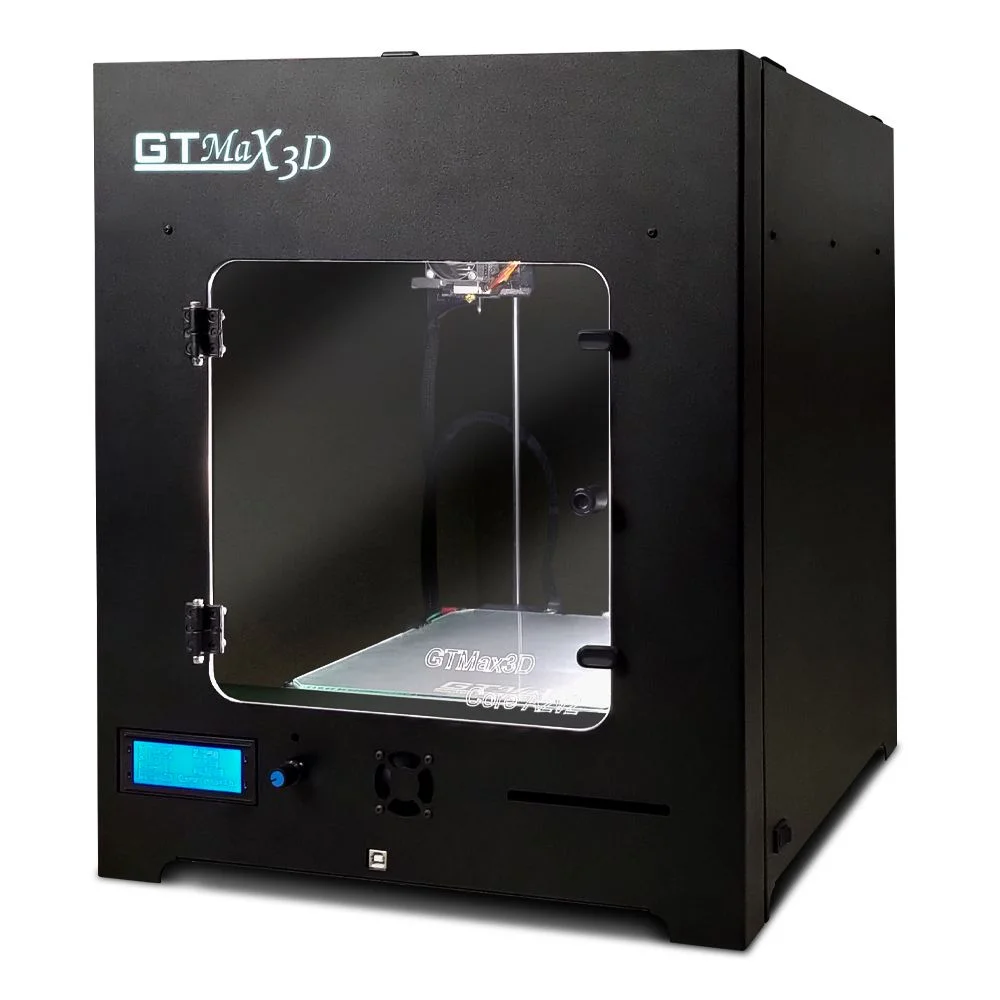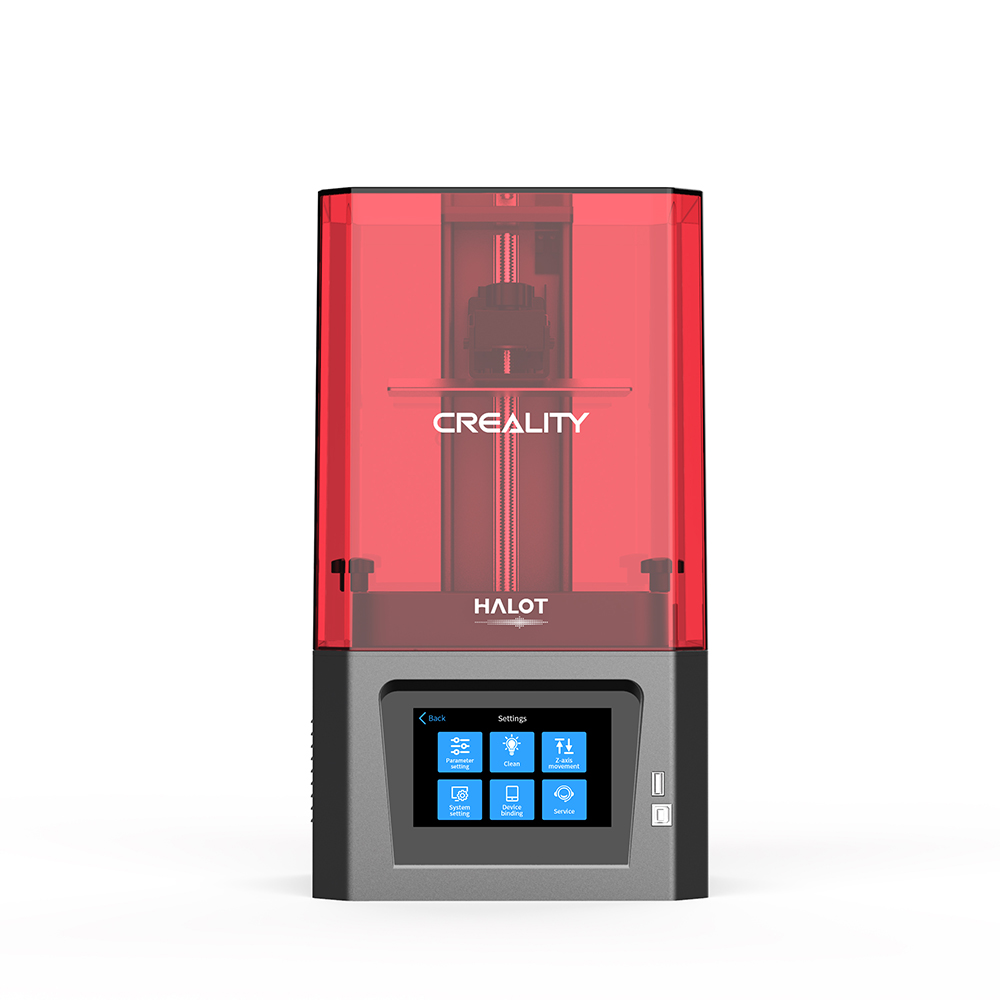Compare Core A2V2 vs Halot One
Comparison between the best 3D printers
Choose the best 3D printer at the best price. The cheapest 3D printers are here.
Buy a 3D printer here with 3D Fila.
 |
 |
|
| Model | Core A2V2 |
Halot One |
| Printing Material | Filament | Resin |
| Buy Filament for GTMax Core A2V2 | Buy Resin forCreality 3D Halot One | |
| Estimated price | $684,00 | $250,00 |
| Manufacturer | GTMax | Creality 3D |
| Release Year | 2019 | 2021 |
| Print Volume [mm] | 220x220x240 | 127x80x160 |
| Printer Size [mm] | 425x460x512 | 221x221x404 |
| Weight [kg] | 7,1 | |
| Power Loss Recovery | YES | NO |
| Maximum Resolution [mm] | 0,05 | 2k |
| Processor | ||
| Display | Mono | |
| Power Supply | ||
| Connectivity | SD / USB | |
| Operating systems | Windows, Mac, Linux | Windows, Mac, Linux |
| Date of registration in the system | 2022-11-12 | 2022-10-11 |
| Release date | 2019 | 2021 |
| Extra features | The GTMax3D ProCore A2v2 is a compact and robust 3D printer with a printing area of ??220 x 220 x 240 mm. It offers high print quality, ranging from 0.05 mm to 0.32 mm. Its features include automatic filament detection and changing, travel speed of up to 300 mm/s, and a heated aluminum bed with a glass top. It has automatic bed leveling with 16 points and an all-metal hotend that reaches up to 298°C. The printer has a carbon steel frame with electrostatic painting, is automatic bivolt and has connectivity via USB and SD card. The Bowden system and core xy kinematics complete its advanced features. | Crealitys Halot-One printer stands out with several innovative features. It has a high-resolution touchscreen, providing an intuitive and responsive interface. Its quiet printing capability is remarkable, ideal for environments where noise is a concern. Assembly and setup are simple, with automatic functions facilitating quick start. Among its features, remote monitoring and adjustments via the Creality Cloud app stand out, simplifying remote print management. Replacing the FEP in the resin vat is easy, and the printer even includes extra FEP sheets. Top cover removal detection increases safety by automatically pausing printing. In addition, its integral light source promises high uniformity, optimizing print quality. |
| Support for multiple colors and materials (AMS and CFS) | NO | NO |
Notes * |
||
| Cost-benefit | 6 / 10 | 8 / 10 |
| Hardware | 2.5 / 10 | 0.5 / 10 |
| Tela | . | . |
| Print volume | 3 / 10 | 3 / 10 |
| Performance | 1 / 10 | 9 / 10 |
Conclusion |
| In evaluating the Core A2V2 and the Halot One 3D printers, several key factors emerge that can guide potential buyers in making an informed decision based on their specific needs and budget. The Core A2V2, while more expensive, offers a larger print volume and a host of advanced features, including automatic filament detection, high-speed travel, and excellent print quality. It supports a robust build quality with an all-metal construction and is suitable for users looking for higher precision in their prints. However, it scores lower in cost-effectiveness and overall performance compared to its counterpart. Conversely, the Halot One, positioned as a more budget-friendly option, presents a compelling value proposition with its innovative features such as an intuitive touchscreen interface, quiet operation, and convenient setup. It excels in performance metrics and is adept at remote print management, making it a desirable choice for those interested in ease of use and effective monitoring. However, its smaller print volume may be a limiting factor for projects requiring larger dimensions. Ultimately, selecting the best 3D printer will depend on the user’s priorities: if larger print capabilities and advanced features are essential, the Core A2V2 is a solid investment. However, for those prioritizing ease of use, cost savings, and robust performance in a compact design, the Halot One emerges as the best option. In conclusion, both printers offer distinct advantages, making them suitable for different user applications and preferences, and the choice should align with individual requirements and financial considerations. |

